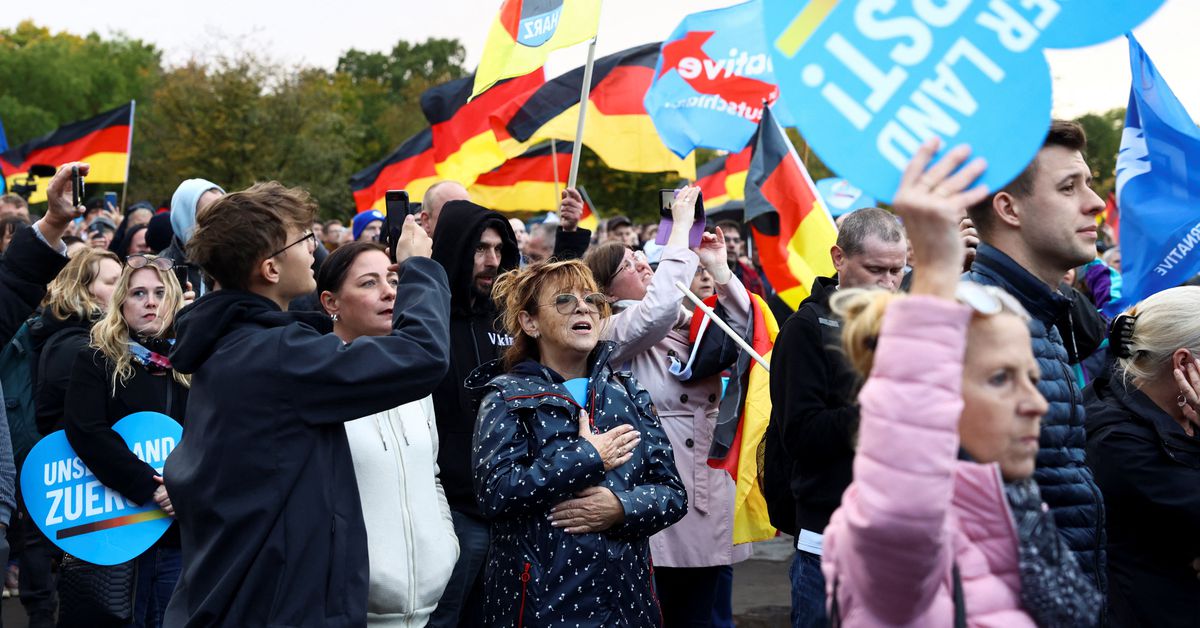BERLIN, June 25 (Reuters) - A far-right Alternative for Germany (AfD) candidate won a vote on Sunday to become a district leader in Europe’s biggest economy for the first time, a breakthrough for the party which has hit record highs in national polls.
The 10-year old AfD, with which Germany’s mainstream parties officially refuse to cooperate due to its radical views, won a run-off vote in the Sonneberg district in the eastern state of Thuringia with its candidate garnering 52.8% of the vote.
It is the latest success for the party which is riding a wave of popular discontent with Social Democrat Chancellor Olaf Scholz’s awkward coalition with the Greens and Free Democrats (FDP) which is dogged by infighting over policy and the budget.
Polling at 19%-20%, behind the opposition conservatives, the AfD is tapping into voter fears about recession, migration and the green transition, say analysts. It even plans to nominate a chancellor candidate in the 2025 federal election.
While far-right parties have gained ground around Europe, the strength of the AfD is particularly sensitive in Germany due to the country’s Nazi past.
The President of the Central Council of Jews in Germany, Josef Schuster, expressed deep shock.
“This is a watershed that this country’s democratic political forces cannot simply accept,” he told RND media.
Particularly strong in the former Communist East, polls suggest the party may win three eastern state votes next year.
A clear victory for the AfD’s Robert Sesselmann in the district, which has a population of only around 56,000 people, sends a signal to Berlin, say analysts, especially as all other parties in Sonneberg joined forces in a front against him.
Sesselmann was forced into a run-off against a conservative candidate after a vote two weeks ago. The conservative candidate won 47.2% on Sunday.
The party opposes economic sanctions against Moscow over the Ukraine war and disputes that human activity is a cause of climate change.
The domestic intelligence agency said this month that far-right extremism posed the biggest threat to democracy in Germany and warned voters about backing the AfD.
Formed a decade ago as an anti-euro party, its popularity surged after the 2015 migrant crisis and it entered parliament in 2017, becoming the official opposition. Reporting by Madeline Chambers; Editing by Chizu Nomiyama



The German government has been keeping a close eye on its members, especially more extreme members to ensure they “aren’t interacting” with openly neo-nazi organizations. Even the most extreme members find ways to skirt the line, avoiding openly meeting with Nazis. Then there’s moderates who are covert racist but focus on making their party’s core racist, bigoted policies seem like common sense policies to make Germany better. Then you have least extreme members who buy into the racist policies but are ignorant about how racist the policies really are and buy into the moderate propaganda. A lot of these least extreme members denounce extremists, wishing they could expel them from the party and worrying about them overtaking the party, and wringing their hands. Very similar to how the US Republican party works.